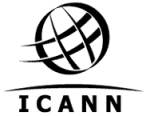The Internet Society has noted with concern a number of U.S. legislative proposals that would mandate DNS blocking and filtering by ISPs in order to protect the interests of copyright holders. We agree with proponents of the Protect-IP Act (PIPA) and Stop Online Piracy Act (SOPA) that combating illegal online activities is a very important public policy objective. However, policies that are enacted to achieve this goal must not undermine the viability of the Internet as a globally reachable platform. After close examination and consultation with the Internet community, we do not believe that the current U.S. legislative proposals are consistent with these basic principles.
In particular, we are concerned with provisions in both laws regarding DNS filtering. DNS filtering is often proposed as a way to block illegal content consumption by end users. Yet policies to mandate DNS filtering have not proven to be effective – these approaches interfere with cross-border data flows and services undermining innovation and social development across the globe. In addition, DNS blocking raises significant concerns with respect to human rights and freedom of expression and may curtail fundamental international principles of rule of law and due process.
The United States has an important leadership role when it comes to online Internet freedoms and should show the way when it comes to balancing local responsibilities and global impact, especially with respect to Internet policy.
In short, the negative impact of DNS filtering far outweighs any short-term, narrow, legal, and commercial benefits. The Internet Society believes that sustained, global collaboration amongst all parties is needed to find ways that protect the global architecture of the Internet while combating illegal online activities. We must all work to support the principles of innovation and freedom of expression upon which the Internet was founded.
Continue reading →
 Policies mandating DNS filtering undermine the open architecture of the Internet and raise human rights and freedom of expression concerns
Policies mandating DNS filtering undermine the open architecture of the Internet and raise human rights and freedom of expression concerns

